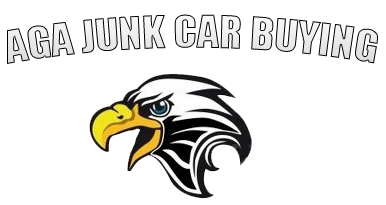Are you tired of spending too much money on fuel for your car? If so, you’re not alone.
Many car owners are looking for ways to improve their gas mileage and save some money at the pump.
The good news is that there are several simple and effective things you can do to boost your car’s fuel efficiency.
From adjusting your driving habits to performing regular maintenance, these tips can make a significant difference in how far you can go on a tank of gas.
How can you get better gas mileage?
To get better gas mileage, you can follow these tips:
1. Keep Your Car Well-Maintained:
Regular maintenance is key to achieving optimal gas mileage.
A well-maintained car not only runs more efficiently, but also avoids potential problems that could reduce fuel consumption.
Changing the oil and replacing air filters at the recommended intervals ensures that the engine runs smoothly and efficiently.
In addition, keeping tires properly inflated reduces rolling resistance and improves fuel consumption.
Regular replacement of a clogged air filter can improve fuel consumption by up to 10%.
2. Avoid aggressive driving:
Aggressive driving with sudden acceleration, hard braking and rapid lane changes can affect your consumption.
By adopting a gentler driving style, you can significantly improve fuel efficiency. Gradual acceleration allows your car’s engine to run more efficiently and conserve fuel.
Similarly, braking gently reduces energy loss, and maintaining a constant speed on highways with the help of cruise control can also increase gas mileage.
For example, imagine driving in a traffic jam with abrupt stops and starts, and braking and accelerating frequently.
This type of driving can reduce your gas mileage by up to 40% on the highway and 27% in the city.
3. Reduce weight:
Carrying unnecessary weight in the vehicle can reduce fuel consumption.
Remove any objects or cargo you don’t need for your trip, as the extra weight requires more energy to move the car, thus consuming more fuel.
In addition, roof racks, bike racks and other accessories that create wind resistance can reduce aerodynamics and negatively affect fuel efficiency.
When not in use, consider removing these accessories to improve fuel economy, especially on long trips.
4. Plan efficient routes:
Proper route planning can help improve fuel consumption.
Whenever possible, avoid congested routes, frequent stops and dense traffic, as these conditions can lead to excessive idling and wasted fuel.
Use navigation apps that provide real-time traffic information to help you find the most efficient and shortest routes.
For example, if you have several errands to run, plan your trip to minimize unnecessary backtracking and backtracking.
Combine your tasks into an efficient route to reduce mileage and fuel consumption.
5. Use the right oil and change filters regularly:
Using the manufacturer’s recommended motor oil with the right viscosity can improve your car’s efficiency.
High-quality motor oil reduces friction and allows the engine to run smoother, improving fuel economy.
In addition, regularly changing the oil filter and air filter ensures that the engine runs at maximum efficiency.
Dirty air filters can reduce acceleration performance and fuel efficiency, wasting your money in the process.
By changing the filters regularly, you can ensure that there is no buildup of dirt or debris in the filter that will impede airflow to the engine, resulting in reduced mileage.
6. Keep your windows closed:
Keeping the windows closed while driving is another effective way to improve fuel economy.
While it may be tempting to roll down the windows on a hot day to enjoy the cool air, doing so can create aerodynamic drag, which negatively affects fuel efficiency.
When driving at high speeds, the drag caused by open windows can increase fuel consumption.
This is especially true in highway driving, where aerodynamic drag becomes more significant.
To maximize fuel efficiency, use your vehicle’s air conditioning system instead of opening the windows while driving at high speeds.
7. Fill the tank early in the morning or late at night:
Filling up early in the morning or late at night can help you improve mileage and save money.
The science behind this tip lies in the concept of fuel density, which is influenced by temperature variations.
During cooler times of the day, such as early in the morning or late at night, the temperature is relatively lower and the ground is cooler.
As a result, gasoline tends to be denser under these conditions.
When you fill up during these cooler periods, you get more fuel per volume than you would during warmer hours.
Warmer temperatures cause the gasoline to expand, which reduces the density of the fuel.
When you fill up during the warmer hours of the day, you may get slightly less fuel for the same price, as the volume of fuel expands with rising temperatures.
8. Avoid idling:
Avoiding unnecessary idling is another effective way to improve mileage and reduce fuel consumption.
When you leave the engine running while the vehicle is stationary, for example, while waiting at a drive-through, in a traffic jam or parked, you are consuming fuel without actually moving, which is a waste of energy.
Idling for extended periods can significantly affect fuel efficiency, as modern engines are designed to consume more fuel when idling than when moving.
If you anticipate being stuck in traffic or waiting for an extended period, it’s better to turn off the engine and restart it when you need to move again.
If you are in Chicago and want to get rid of your old car as quickly as possible, sell it to AGA Cash Junk Cars Inc.!
We pay cash for old and damaged cars, trucks, SUVs and vans. Call us (312) 401-2157 now to get a free-quote.
At what speed do you save the most gas?
The speed at which you save the most gas depends on several factors, such as the type of vehicle and engine size.
Generally speaking, fuel economy is usually between 50-60 mph (80-97 km/h).
Driving faster than this will increase air resistance and reduce fuel efficiency, while driving slower can result in lower levels of performance from your vehicle.
But if your car is progressively not saving gas mileage or if it has a damaged steering wheel, the best thing to do is to go to a mechanic immediately.
In conclusion, it is evident that improving fuel efficiency is not a herculean task. With a few simple changes in your driving habits and vehicle maintenance practices, you can significantly reduce fuel consumption, save money, and contribute to environmental conservation.
Remember that every small step counts. Regular maintenance, efficient route planning, and mindful driving can all lead to remarkable fuel savings.
Fuel efficiency is not only about your vehicle performance; it’s also about how you command the wheel.


